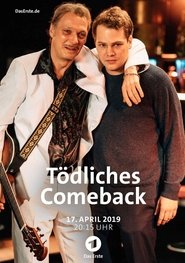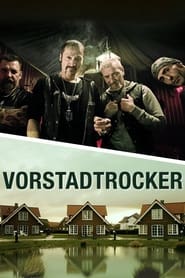detail profile matthias bundschuh
Peran Yang Di Mainkan Matthias Bundschuh
 This summer Pumuckl and Eder have...
This summer Pumuckl and Eder have...Pumuckl und das grosse Missverständnis 2025
This summer, Pumuckl and Eder have a lot going on: a turtle, a trip to the countryside and then neighbor Burke's birthday! Perhaps too much - because with so many events going on, the two of them are barely able to maintain their friendship. And when a big misunderstanding arises, everything changes between Eder and Pumuckl...
 Growing up on the grounds of...
Growing up on the grounds of...When Will It Be Again Like It Never Was Before 2023
Growing up on the grounds of one of Germany's largest psychiatric hospitals is somehow - different. For Joachim, the director's youngest son, the patients are like family. They are also much nicer to him than his two older brothers, who drive him into fits of rage. His mother, painting watercolors, longs for Italian summer nights instead of constant German rain, while his father secretly, but not discreetly enough, goes his own way. But while Joachim slowly grows up, his world, not only through the loss of his first love, gets more and more cracks...
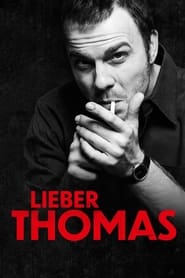 Thomas Brasch was born as a...
Thomas Brasch was born as a...Dear Thomas 2021
Thomas Brasch was born as a German-Jewish emigrant in England in order to move to the young GDR with his family at the beginning of the 1950s. His father Horst is primarily interested in helping to build the new German state. But Thomas prefers to realize himself as a writer and in doing so discovers his potential as a poetic rebel. His very first play was banned and soon afterwards he lost his place at the film school. When the tanks of the Soviet Union roll through the Czech capital Prague in 1968, Brasch and his girlfriend Sanda and other students try to call for protest in the streets of Berlin - and fail. His own father betrays him to the Stasi and allows Thomas to go to prison. After being paroled, he continues to try his hand at poet writing about love, revolt and death. In the GDR, however, you don't want to have anything to do with someone like him.
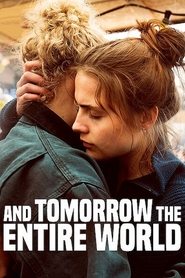 Luisa a 20yearold law student joins...
Luisa a 20yearold law student joins...And Tomorrow the Entire World 2021
Luisa, a 20-year-old law student, joins a cell of the Antifa group when she and her friends Alfa and Lenor get to know about an upcoming attack planned by a local neo-Nazi gang. As they try to find out more, the three youngsters delve deeper into the scene linked to right-wing movements and their political connections, to the point where they will understand how much they are willing to go further, in order to defend their own beliefs.
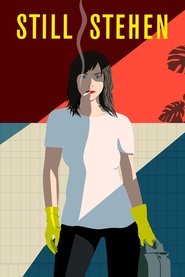 These young women are an odd...
These young women are an odd...Stay Still 2021
These young women are an odd couple. Julie is quick-witted and stubborn. She celebrates idleness and even voluntarily checks into a psychiatric clinic. Nurse Agnes, on the other hand, is always eager to do the right thing and to meet everyone's expectations of her, which is not always easy. When the two of them accidentally meet one day, odds are they won't get along. But they quickly feel attracted to one another, despite their enormous differences.
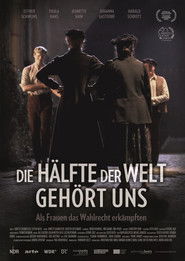 They were at best mocked or...
They were at best mocked or...We Are Half The World 2018
They were, at best mocked or ridiculed, at worst incarcerated, tortured, or even beheaded. But they would not be deterred. For decades ten thousands of women in Germany, Great Britain, in France, the U.S. and many other countries fought for their right to vote. Some used the institutions, others turned into media savvy politicians, and still others turned to terrorism, went on hunger strike, or died as martyrs. 100 years later we tell a multi-perspective and emotional story of the international fight, against all odds, for women’s suffrage as an important step towards equal rights.
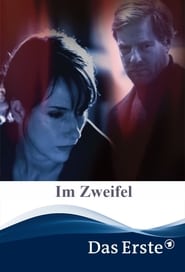 For Pastor Judith Ehrmann her job...
For Pastor Judith Ehrmann her job...Im Zweifel 2016
For Pastor Judith Ehrmann, her job as an emergency counselor is more than just part of her job: giving people assistance is a vocation for them. But when a classmate of her son dies in a car accident, that's unusual. Judith begins to doubt: herself, her job - but also her family. For all at once everything seems to indicate that her own husband and son were involved in the accident and now want to cover this up. The emotionally intense drama of award-winning director Aelrun Goette raises fundamental themes without giving easy answers.
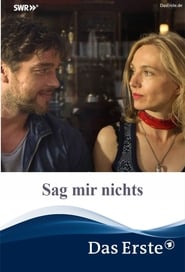 Lena is happily married From the...
Lena is happily married From the...Sag mir nichts 2016
Lena is happily married. From the strange man in the S-Bahn but such a pull goes out that she gets involved in a spontaneous infidelity. The stranger, Martin, also thought that the marriage with his wife was completely safe. Nevertheless, what should actually be written off as an adventure between Lena and Martin is becoming the projection screen for newly created needs and longings. Lena and Martin can not let go of each other.
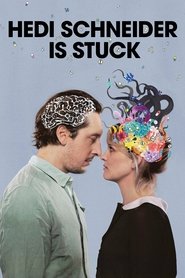 A model familys happy life unexpectedly...
A model familys happy life unexpectedly...Hedi Schneider Is Stuck 2015
A model family's happy life unexpectedly goes off the rails when the carefree Hedi, played by Laura Tonke, suddenly starts having panic attacks. First mental illness and then drug dependency – the happiness that these happy-go-lucky thirty-somethings once took for granted suddenly seems unattainable, and their world fragile and uncertain.
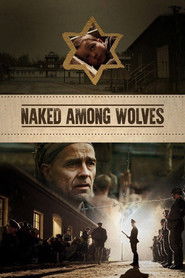 Taking place at the Concentration camp...
Taking place at the Concentration camp...Naked Among Wolves 2015
Taking place at the Concentration camp Buchenwald at the end of March 1945, prisoner Hans Pippig discovers in a carrying case of an incoming prisoner a Jewish child. If reported the three-year-old is sure to die. On the other hand, a violation of the rules of the camp would threaten the long prepared uprising of the concentration camp prisoners against the SS.
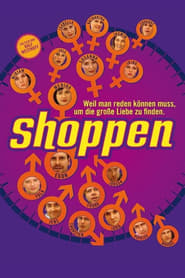 An almost bombproof method of staying...
An almost bombproof method of staying...Shoppen 2007
An almost bombproof method of staying single is called "speed dating". 18 people participate in such an event. Nine men and nine women are sitting opposite each other in order to sell optimally under the pressure of time and to find a partner. They are looking for a date - and have nothing else in common. They talk about allergies, cappuccino, consumer behavior, buses and designer clothes: the list of serious embarrassments is long. Yet none of the lonely hearts has given up the hope of romance.
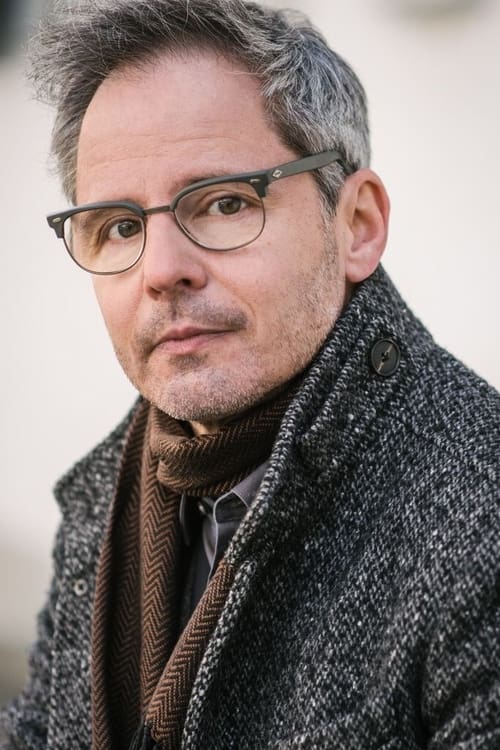
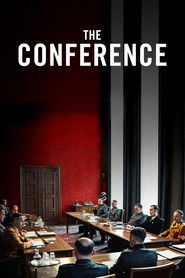 On January 20 1942 the Wannsee Conference takes...
On January 20 1942 the Wannsee Conference takes...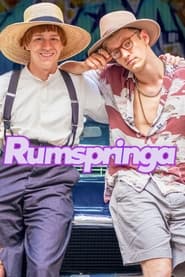 During a trip to Berlin a...
During a trip to Berlin a...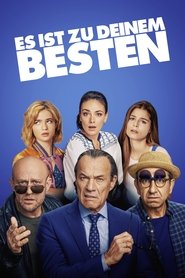 Three fathers who are also brothersinlaw...
Three fathers who are also brothersinlaw...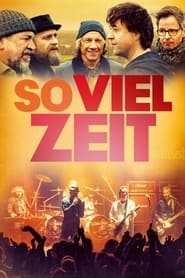 Five old friends have to prove...
Five old friends have to prove...